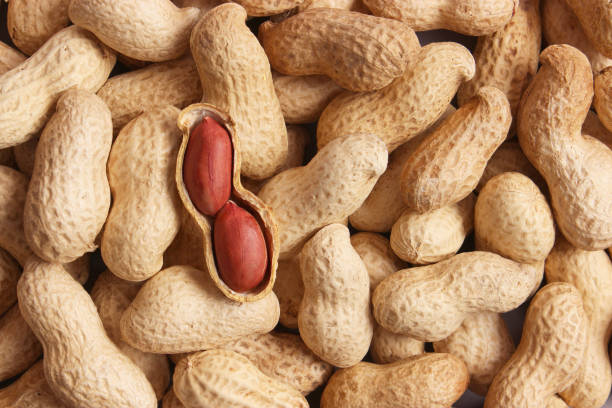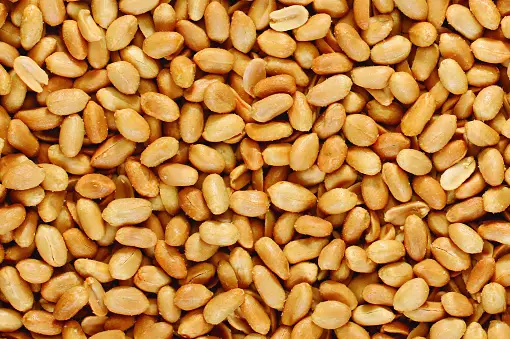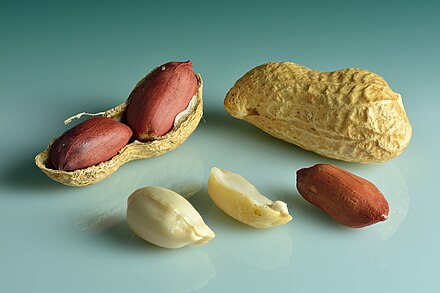Peanuts, often referred to as groundnuts, stand as a humble yet nutritionally dense legume that has made its mark on global cuisine. Beyond being a popular snack or peanut butter’s main ingredient, peanuts offer a wealth of essential nutrients and healthful components that contribute to overall well-being.
Rich Source of Plant-Based Protein:
Peanuts are a notable source of plant-based protein, making them an excellent dietary choice, especially for individuals following vegetarian or vegan lifestyles. Protein is essential for muscle repair, immune function, and the synthesis of enzymes and hormones. The protein content in peanuts adds to the diversity of protein sources available in a balanced diet.

Heart-Healthy Monounsaturated Fats:
While peanuts do contain fats, the majority are heart-healthy monounsaturated and polyunsaturated fats. These fats contribute to cardiovascular health by helping manage cholesterol levels and reducing the risk of heart disease. Including peanuts in moderation as part of a well-balanced diet supports the body’s need for healthy fats.
Abundance of Dietary Fiber:
Peanuts are rich in dietary fiber, comprising both soluble and insoluble fibers. This fiber content plays a crucial role in supporting digestive health by promoting regular bowel movements, preventing constipation, and fostering a healthy gut microbiome. The fiber in peanuts contributes to a feeling of fullness, aiding in weight management and overall digestive wellness.

Essential Micronutrients (Vitamins and Minerals):
Peanuts boast an array of essential micronutrients, including B vitamins such as niacin (B3), which is important for energy metabolism, and folate (B9), crucial for DNA synthesis and cell division. Peanuts also provide minerals like magnesium, which supports muscle and nerve function, and phosphorus, essential for bone health. The diverse micronutrient profile in peanuts contributes to overall physiological well-being.
Antioxidant Properties:
Peanuts contain antioxidants, including resveratrol, which has been linked to various health benefits. Antioxidants play a role in neutralizing free radicals, reducing oxidative stress, and potentially preventing chronic diseases. The presence of antioxidants in peanuts adds to their healthful properties, supporting cellular health and overall longevity.

Potential Blood Sugar Regulation:
Some studies suggest that the consumption of peanuts may contribute to better blood sugar regulation. The combination of protein, healthy fats, and fiber in peanuts can contribute to sustained energy release and help manage blood glucose levels, making them a favorable choice for those concerned about blood sugar levels.
Versatility in Culinary Applications:
Peanuts’ culinary versatility extends from being enjoyed as a snack in its roasted form to being incorporated into various dishes such as stir-fries, sauces, and desserts. Peanut butter, a popular product derived from peanuts, has become a staple in many households, offering a convenient and delicious way to enjoy the nutritional benefits of peanuts.

In conclusion, peanuts, with their protein richness, heart-healthy fats, and diverse nutrient profile, stand as a nutritional treasure in the realm of legumes. As we appreciate their crunch and savor their flavor, we partake in a journey that celebrates not only the delicious taste but also the healthful benefits of peanuts. From supporting heart health to providing essential nutrients, peanuts remain a symbol of both culinary delight and nutritional abundance in the diverse and flavorful landscape of global cuisine.




